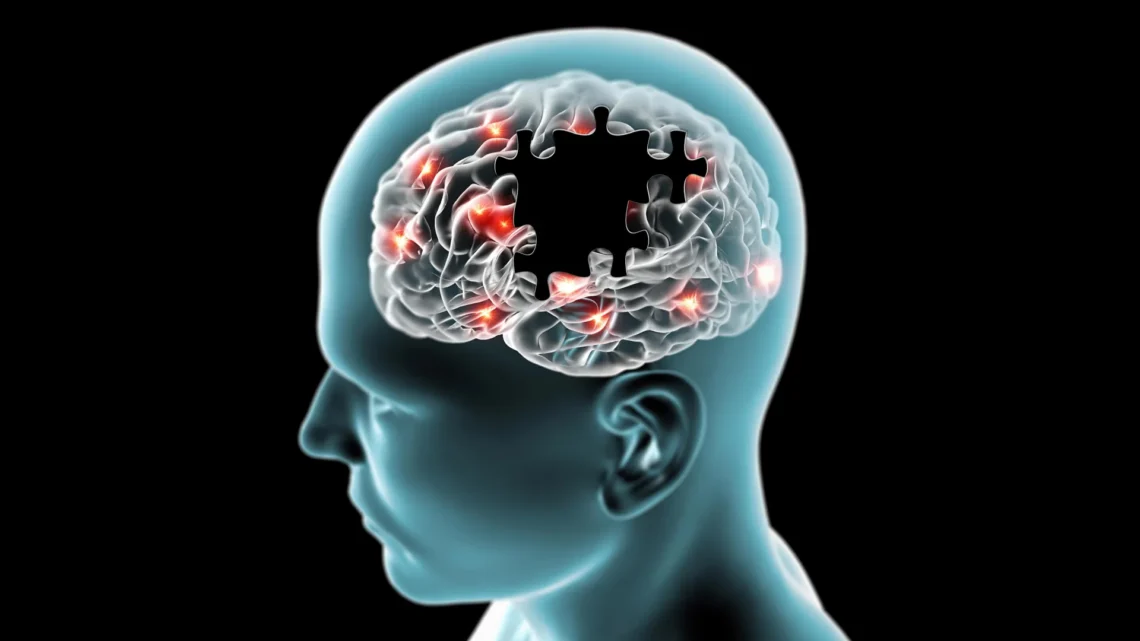Chronic Insomnia and Brain Health
- Chronic insomnia, defined as difficulty sleeping at least three days a week for three months or more, is associated with accelerated brain aging.
- Individuals with chronic insomnia face a 40% greater risk of developing dementia or mild cognitive impairments compared to those without insomnia.
- Insomnia, coupled with perceived reduced sleep, correlates with cognitive decline akin to being four years older.
- Improved sleep quality may serve as a protective factor for brain health.
Recent research published in the Neurology journal indicates that individuals suffering from chronic insomnia may experience a more rapid decline in cognitive abilities and memory as they age. This decline is accompanied by observable brain changes detectable through imaging scans.
The study revealed a 40% increased risk of mild cognitive impairment or dementia in individuals with chronic insomnia, translating to a cognitive decline equivalent to an additional 3.5 years of aging. It is important to note that this research identifies an association rather than a causal relationship between insomnia and brain aging.
Diego Z. Carvalho, MD, from the Mayo Clinic and a member of the American Academy of Neurology, stated, “Insomnia doesn’t just affect daily functioning; it may also influence long-term brain health.” The study illustrated a more rapid decline in cognitive skills among participants suffering from chronic insomnia, suggesting it may be an early warning sign or a contributing factor to cognitive issues in the future.
The research involved tracking 2,750 cognitively healthy older adults over an average of 5.6 years, with 16% of participants exhibiting chronic insomnia.
At the initiation of the study, participants answered questions regarding their sleep patterns over the preceding two weeks. They also underwent annual cognitive assessments, and select individuals received brain scans to identify white matter hyperintensities—areas indicative of small vessel damage in the brain—and amyloid plaques associated with Alzheimer’s disease.
Results indicated that 14% of participants with chronic insomnia developed mild cognitive impairment or dementia, in contrast to 10% of those without insomnia. After adjusting for variables such as age, hypertension, sleep medication use, and sleep apnea, it was determined that individuals with insomnia had a 40% higher likelihood of developing cognitive impairments compared to their counterparts.
The study categorized insomnia based on participants’ reported sleep duration: those obtaining less sleep than usual versus those sleeping more than usual. Individuals who reported inadequate sleep exhibited lower cognitive test scores at the study’s onset, with results indicating a decline comparable to an increase in age by four years. Furthermore, they presented with a higher incidence of white matter hyperintensities and amyloid plaques, similar to individuals with the APOE ε4 gene, a known genetic risk factor for Alzheimer’s disease.
Conversely, participants who noted increased sleep were shown to have fewer white matter hyperintensities initially.
Certain demographics exhibited heightened vulnerability; participants with the APOE ε4 gene demonstrated more pronounced declines in cognitive function.
Dr. Carvalho remarked, “Our findings indicate that insomnia may affect the brain in various capacities, involving not only amyloid plaques but also small vessels that supply blood to the brain.” He underscored the critical need for effective treatment of chronic insomnia, not solely to enhance sleep quality but also to potentially safeguard brain health as individuals age. This evidence highlights the essential nature of sleep in fostering brain resilience.
A limitation of this study was its reliance on medical records for insomnia diagnoses, which may overlook undiagnosed cases or fail to reflect the severity of symptoms.
This research received support from the National Institutes of Health, GHR Foundation, Mayo Foundation for Medical Education and Research, and a grant from Sleep Number Corporation to the Mayo Clinic.
Key Health Takeaway
Chronic insomnia poses significant risks to cognitive health, potentially accelerating brain aging and increasing the likelihood of dementia. Prioritizing quality sleep may not only enhance daily functioning but also protect long-term brain health.





